INITIAL Coronavirus Advice Letters for the Extremely Vulnerable from the NHS
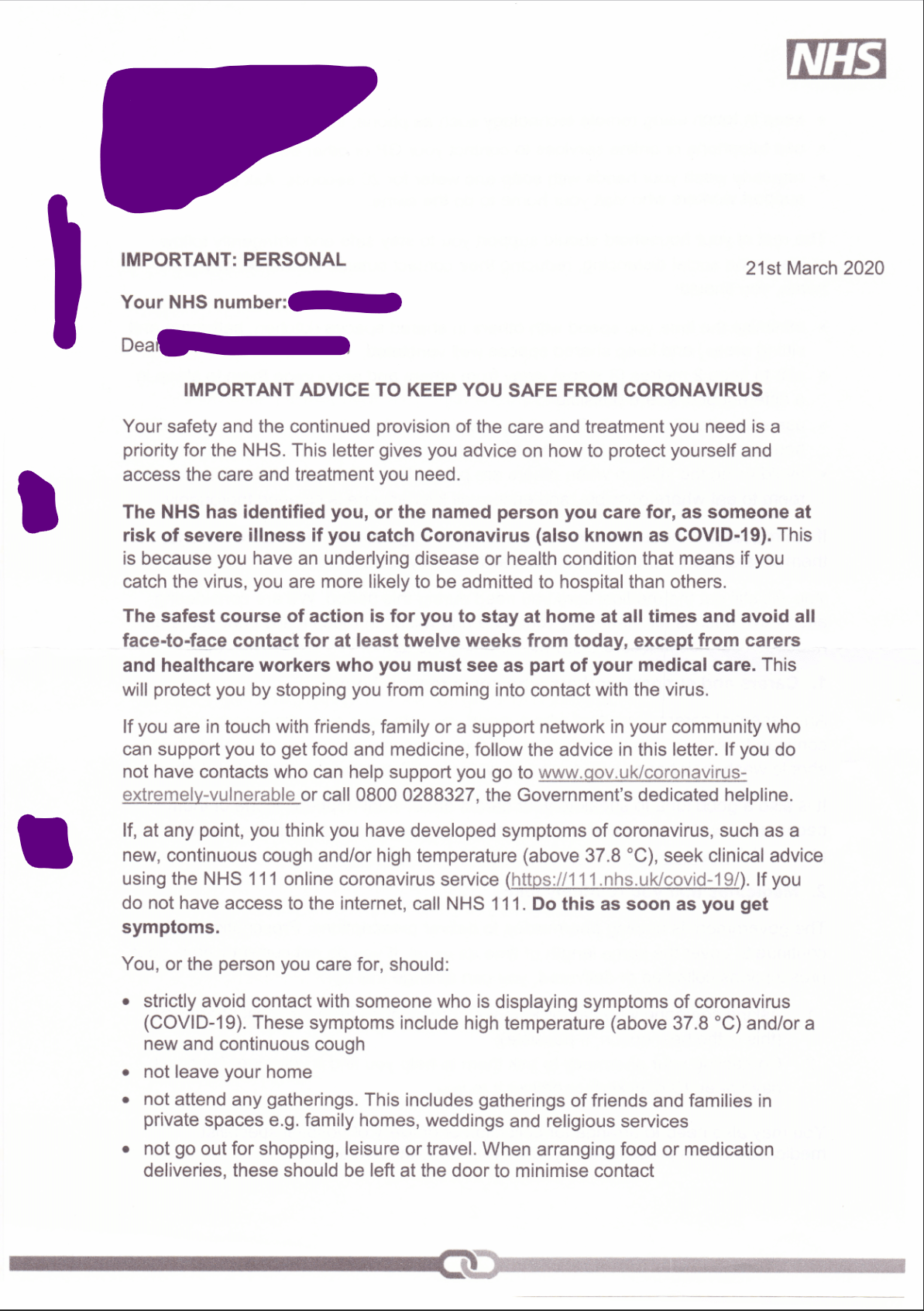
The government announced in March that patients who were the most (extremely) vulnerable to COVID-19 (Coronavirus) needed to shield (self-isolate for 12 weeks because their medical vulnerability) themselves from people outside their household and take other measures within the household to minimise the risk of catching the virus.
As of writing (9th April) we are still hearing anecdotal evidence that some patients who should have received a letter have not. This article describes who should receive these letters, what's in them, why they are important, and what to do if you haven't received one.
If you are eligible, ensure that the government can provide services to you by registering at: www.gov.uk/coronavirus-extremely-vulnerable or calling 0800 0288327.
Who should receive a letter and what is the difference between vulnerable and extremely vulnerable?
The letter is sent to people the government defines as extremely vulnerable. The criteria are here:
Criteria for extremely vulnerable people
For kidney patients the key groups are considered extremely vulnerable are transplant and dialysis patients.
For additional clarity, the government describes 5 segments of the population when providing advice and support. Note the difference between vulnerable (underlying health condition - such as diabetes or chronic kidney disease) and extremely vulnerable (serious underlying health condition - such as dialysis or transplant patients).
The table below outlines these groups and the summary of advice (as of 22nd March) applicable to them.
| Group | 0-69 | 70+ | Pregnant women | Underlying health condition | Serious underlying health condition |
| Examples | self-evident | Diabetes, CKD | Dialysis, Transplant | ||
| Susceptibility to the virus | Standard | Vulnerable | Extremely vulnerable | ||
| Risk of severe illness from COVID-19 | Low to medium | High (or unclear so precautionary) | Very high | ||
| For more information visit | stay at home | Guidance for the vulnerable | Guidance for the extremely vulnerable | ||
Kidney Care UK provides some more details about how the list of patients is compiled within this section:
https://www.kidneycareuk.org/news-and-campaigns/coronavirus-advice/#shielding
What is in the letter?
Here is a sample of a letter:

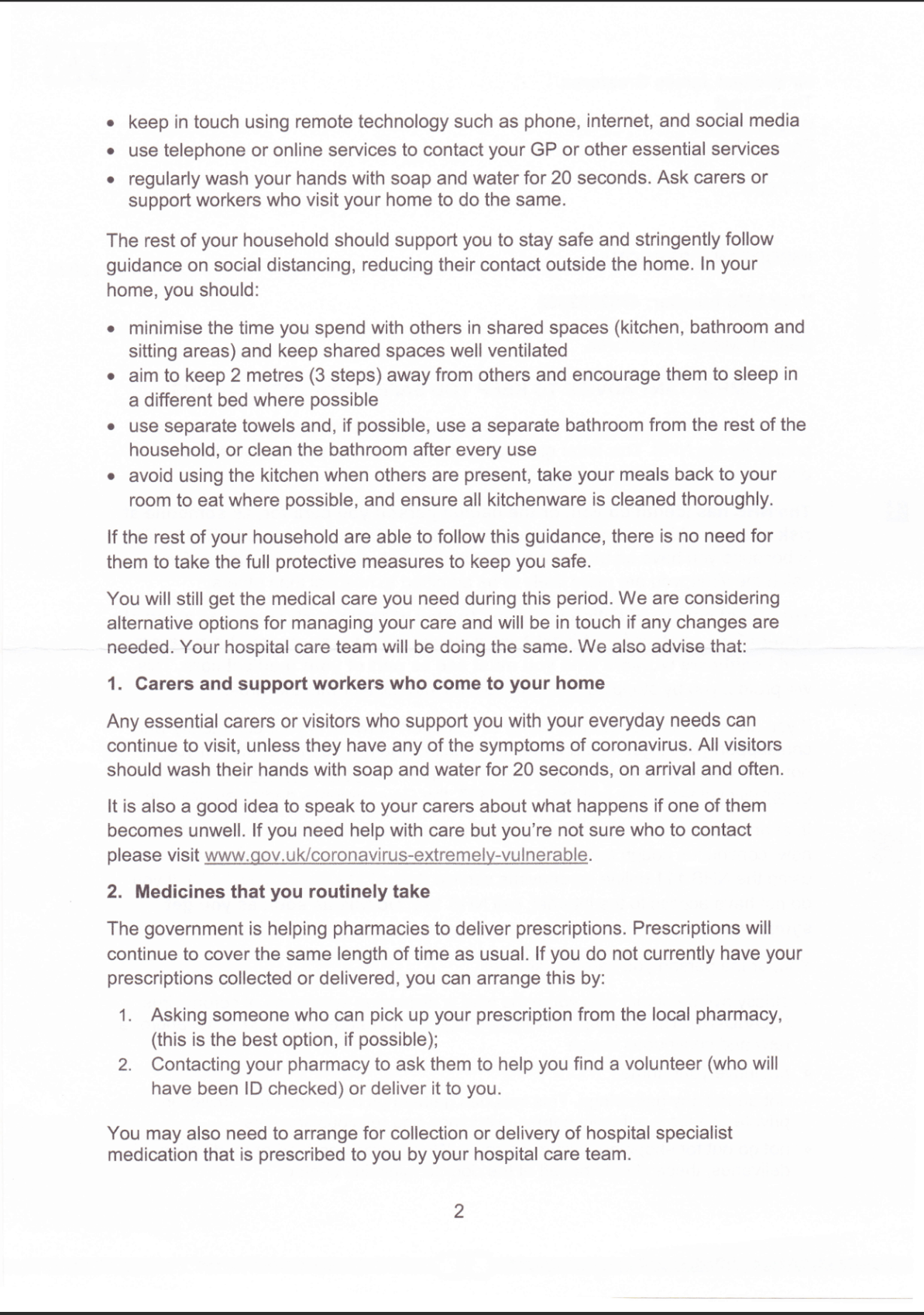
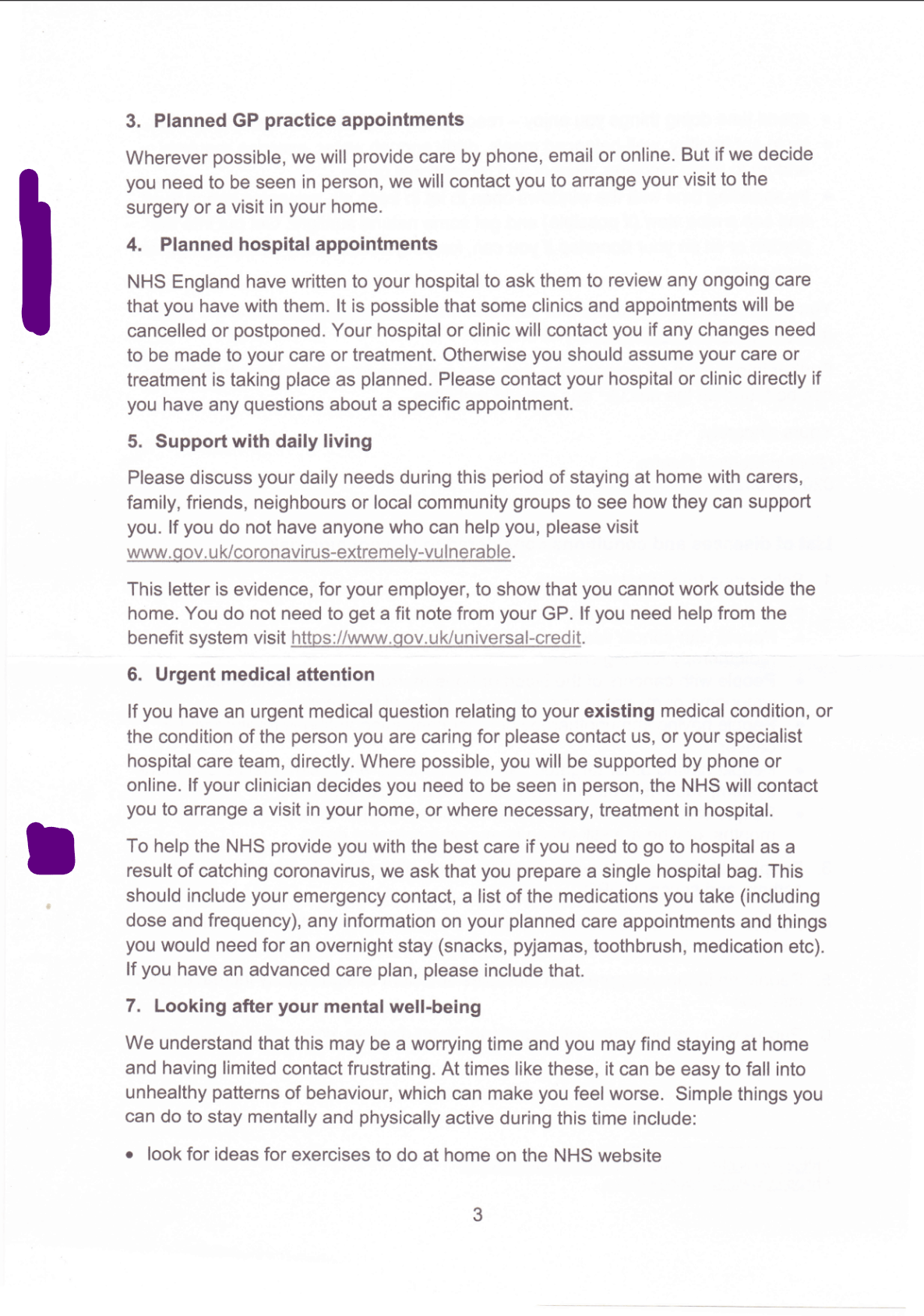
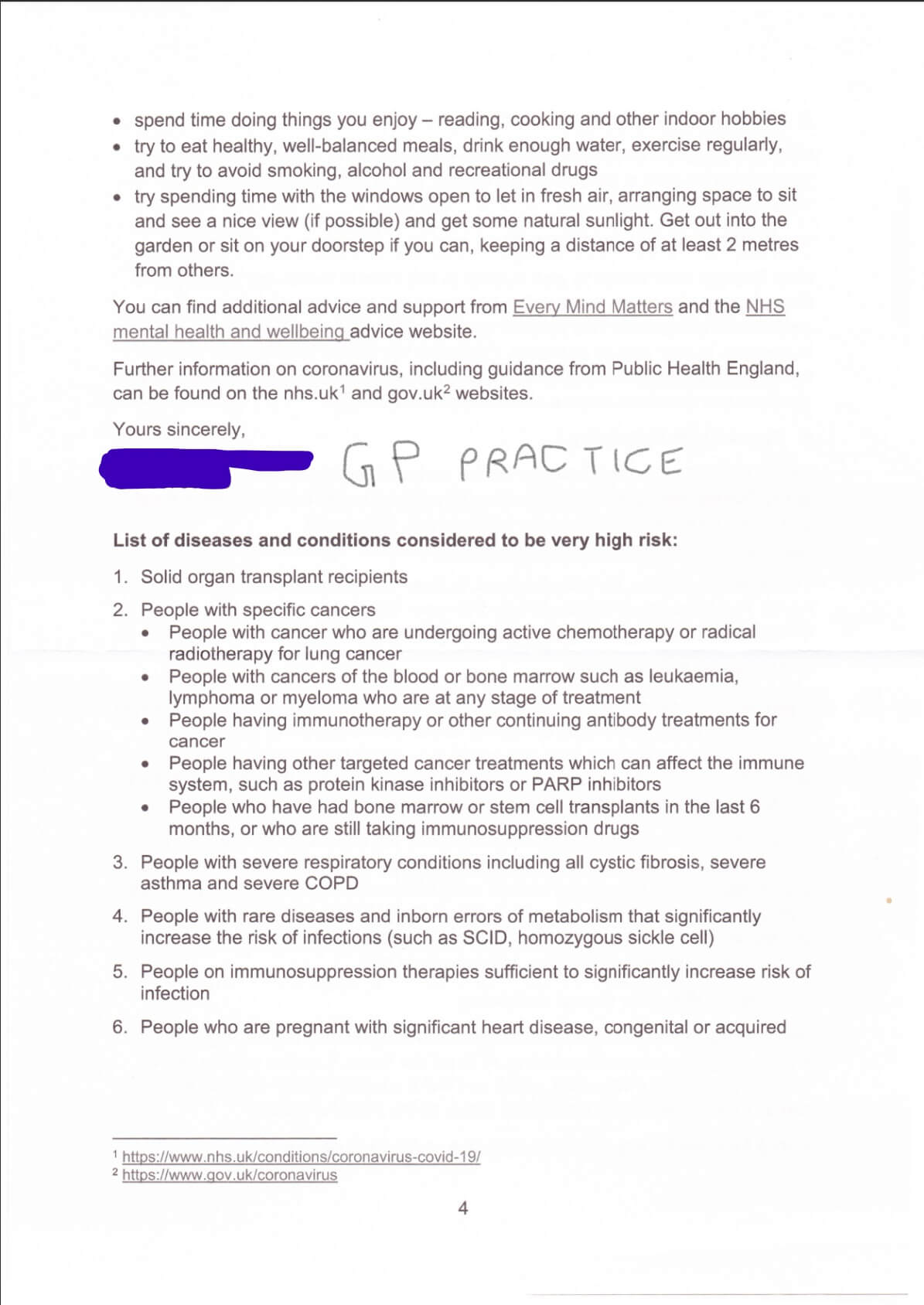
Why is it important?
The letter is important as it contains advice and information specifically for extremely vulnerable patients that is not available from other sources.
It is also a "passport" to other services:
- Priority access to local services.
- Access to an emergency food parcel service run by the council
- Preferential access to supermarket delivery slots.
- Evidence for an employer that you cannot work outside your home.
What should I do if I have not received a letter?
If you are eligible, ensure that the government can provide services to you by registering at: www.gov.uk/coronavirus-extremely-vulnerable or calling 0800 0288327.
Then make sure that your contact details (address and mobile number) are up-to-date with your GP. The mobile is used to send government advice text messages to your phone. You can check this online with some surgeries via and application such as "Patient Access" if your GP offers it. Alternatively call reception for help.
Letters are also going out from St George's renal unit to "plug the gaps". Addressed to GPs and yourself, if you are a dialysis or transplant patient, they ask the GP to place you on the "COVID At Risk" register and attach another advice letter.
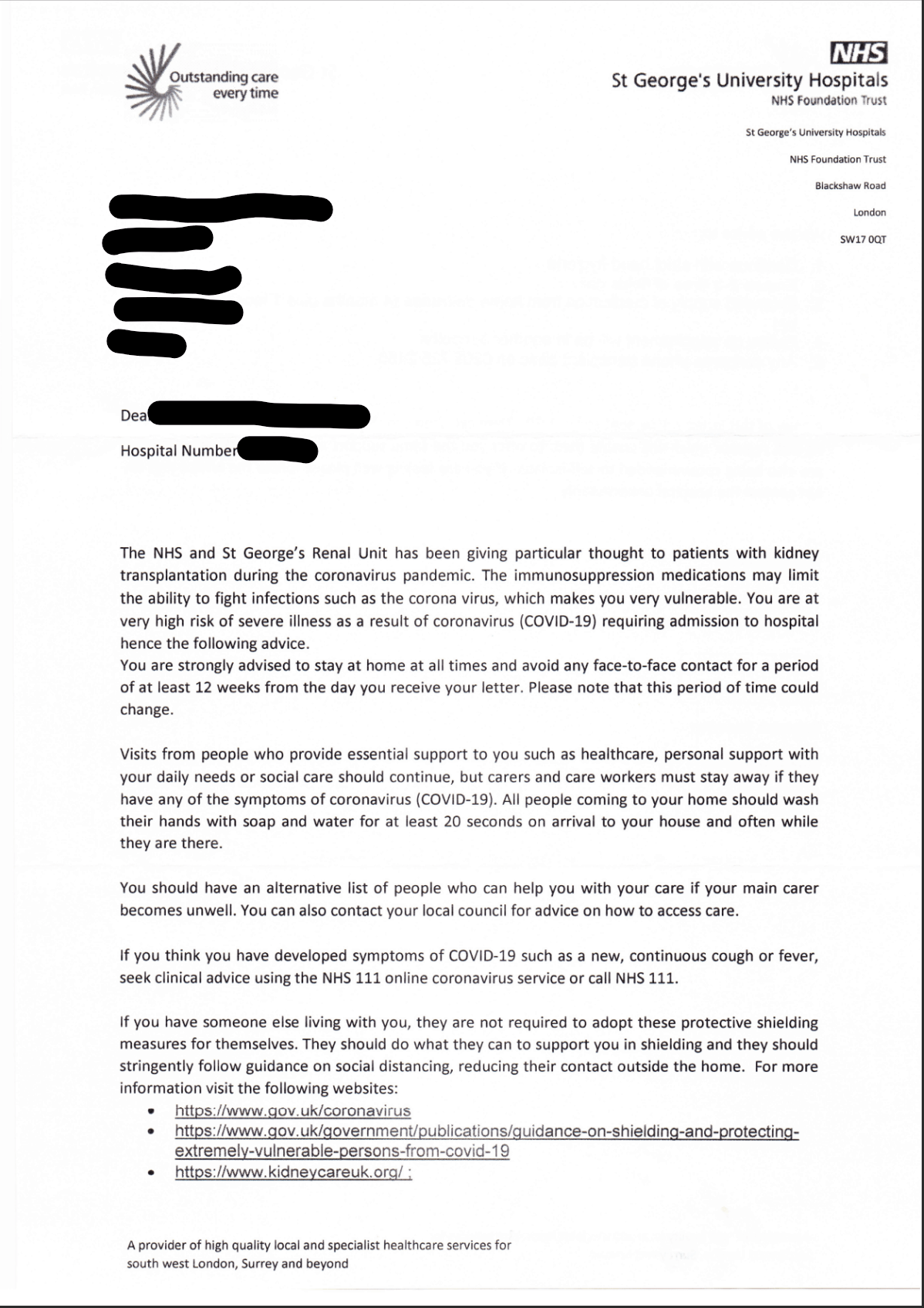
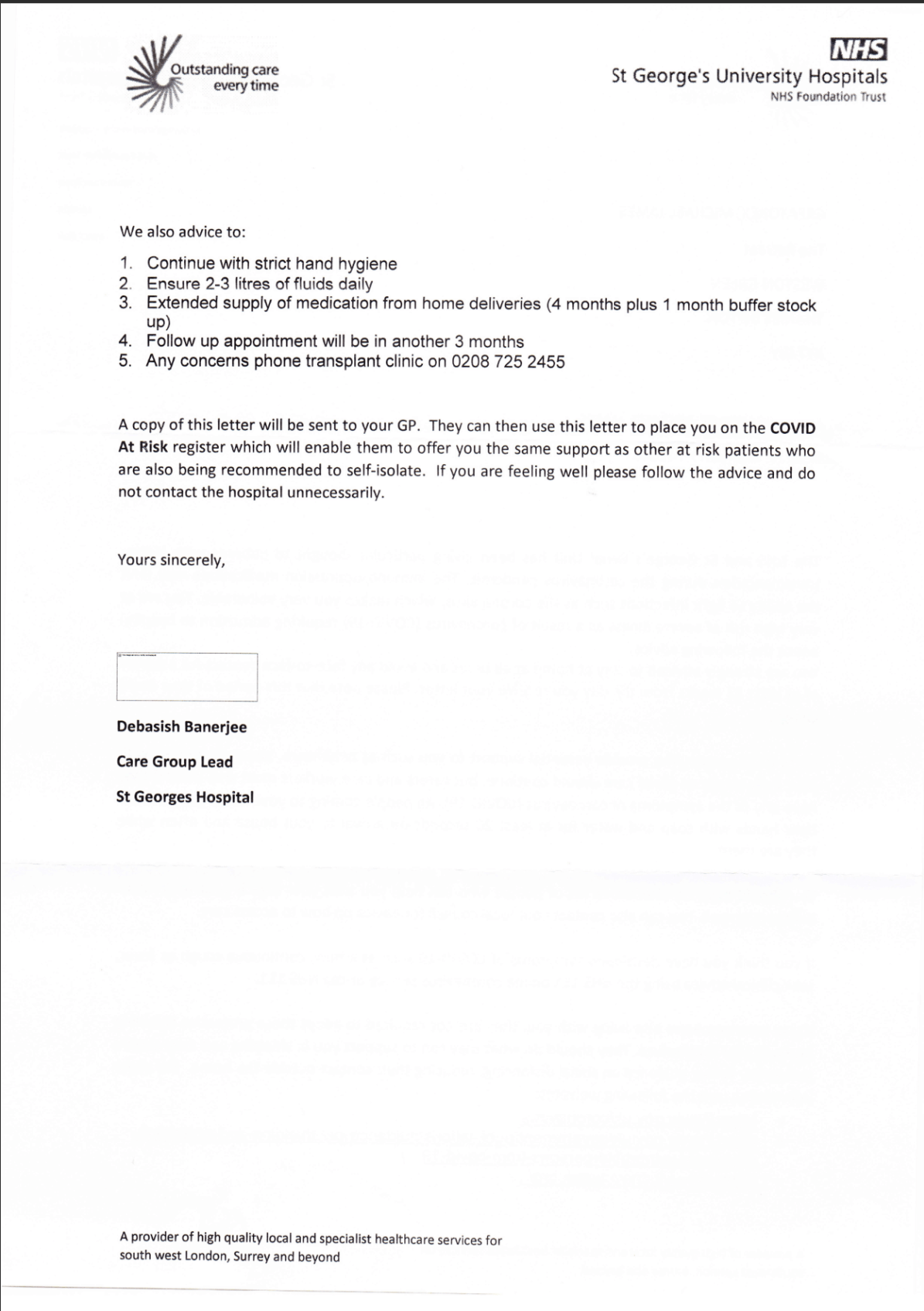
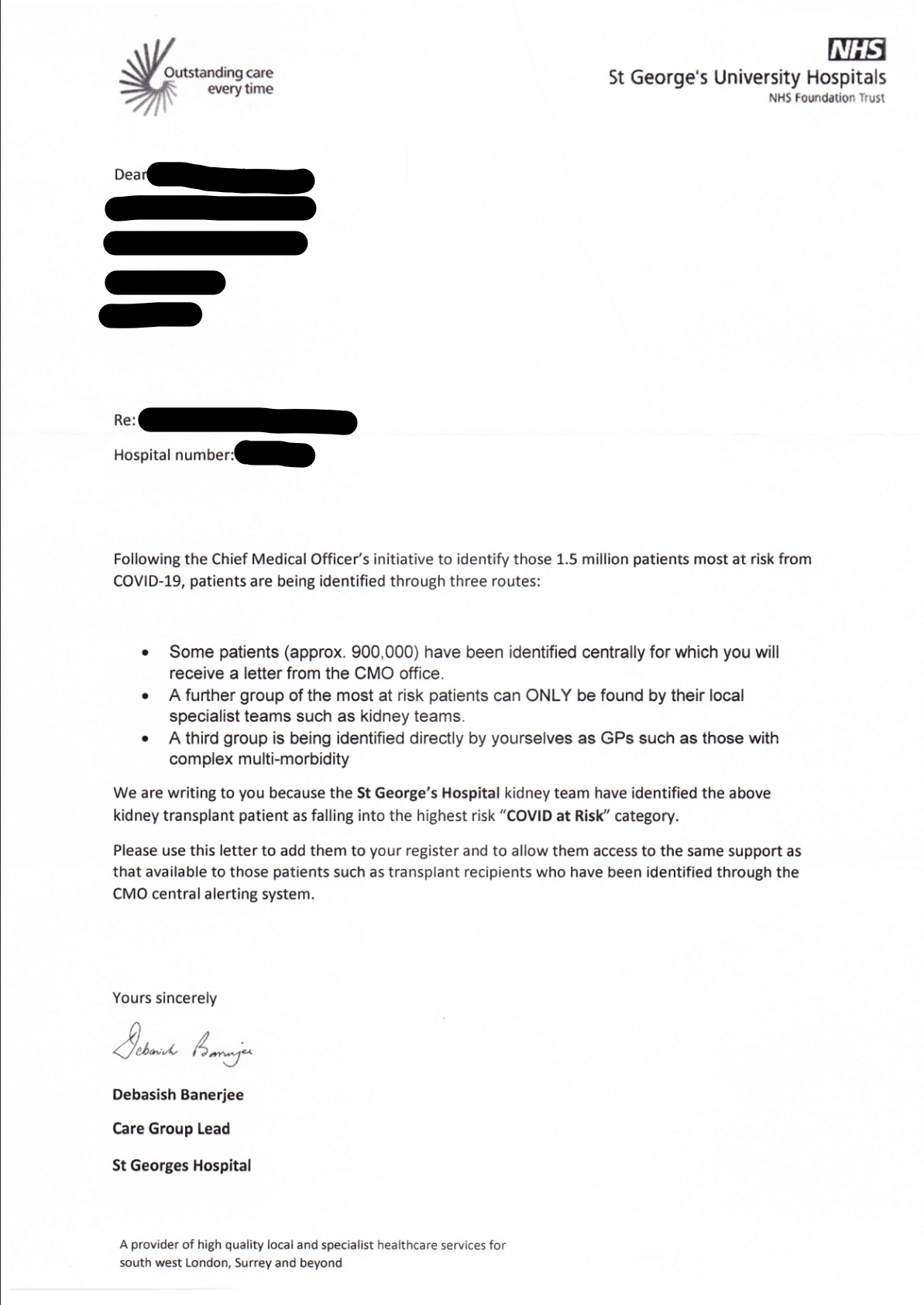
You can then, if necessary, check with your GP to see if you have been listed by them as being extremely vulnerable and if not ask them to change that based on St George's letter and your health conditions. If your GP disagrees with you, for example you are on dialysis (not explicitly mentioned), refer them to https://renal.org/covid-19/. where it says in the presidents briefing: "Dialysis patients can use the criteria of having a rare disease or condition which increases the risk of infection." Kidney Care UK has provided additional information here:
https://www.kidneycareuk.org/news-and-campaigns/coronavirus-advice/#shielding
Finally contact your consultant if you are still not on the "COVID At Risk" register.

